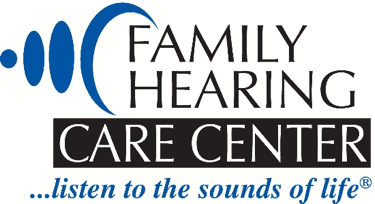
Encouraging a Loved One to Get a Hearing Test
Living a life where you’re unable to enjoy conversations and hear joyful laughter, birds chirping, and the sound of nature can be frustrating. Unfortunately, this is the reality for millions of people with hearing loss. If you suspect a loved one might be experiencing hearing difficulties, it’s important to encourage them to seek professional help.
Hearing loss can be a sensitive topic, and it’s natural to feel hesitant about bringing it up. However, early detection and intervention can significantly improve the quality of life. By gently suggesting a hearing test, you can help your loved one regain their hearing and reconnect with the world around them.
Understanding the Importance of Hearing Health
Hearing loss is a common condition that can affect people of all ages. It can be caused by a variety of factors, including genetics, age, noise exposure, and certain medical conditions. While it’s a common problem, many people are hesitant to seek help due to fear, stigma, or denial. It’s crucial to emphasize the importance of early intervention. Hearing aids can significantly improve quality of life, allowing individuals to fully participate in conversations, enjoy social activities, and maintain their independence.
Signs and Symptoms of Hearing Loss
Hearing loss can develop gradually, making it easy to miss the early signs. One of the most common symptoms is having difficulty understanding conversations, especially in noisy environments. You may find yourself asking people to repeat themselves frequently or notice that speech sounds muffled. Turning up the volume on the TV or radio more than usual is another sign. You might also struggle to hear high-pitched sounds like children’s voices or birds chirping. These subtle changes can be early indicators that your hearing is not as sharp as it used to be.
In more advanced cases, you might begin avoiding social situations because of the frustration of not being able to follow conversations. Missing phone calls, alarms, or doorbells can also signal hearing loss. Additionally, ringing in the ears, known as tinnitus, often accompanies hearing loss. If you’re noticing any of these symptoms, it’s important to consult a hearing healthcare professional for a proper assessment.
Approaching the Conversation with Empathy
When discussing hearing loss with a loved one, it’s important to approach the topic with sensitivity and understanding. Avoid making assumptions or accusations. Instead, focus on expressing your concern and offering support. Use phrases like, “I’ve noticed you’ve been having trouble hearing lately. Would you like to talk about it?” or “I’m here to listen and help in any way I can.” It’s important to listen without judgment and acknowledge their feelings, as hearing loss can be an emotional and frustrating experience. Be patient, offer your help in seeking solutions, and remind them that hearing loss is common and treatable.
Overcoming Obstacles and Providing Support
Many people with hearing loss may feel embarrassed or ashamed to admit they need help. It’s important to address their concerns and reassure them that seeking professional care is nothing to be embarrassed about. Remind them that hearing aids are becoming more advanced and discreet, and they can significantly improve their overall well-being.
Once your loved one has decided to schedule a hearing test, offer your support throughout the process. Accompany them to the appointment, and be prepared to answer any questions the hearing health professional may have. After the evaluation, be there to listen to their concerns and provide encouragement.
Finding the Right Hearing Professional
When it comes to finding a qualified hearing health professional, it’s important to do your research. Look for a provider who is experienced, knowledgeable, and compassionate. Consider asking friends or family members for recommendations or checking online reviews.
Regular hearing check-ups are essential for maintaining good hearing health. Encourage your loved one to schedule follow-up appointments with their hearing health professional as recommended. This will help ensure that their hearing aids are fitting properly and providing optimal performance.
